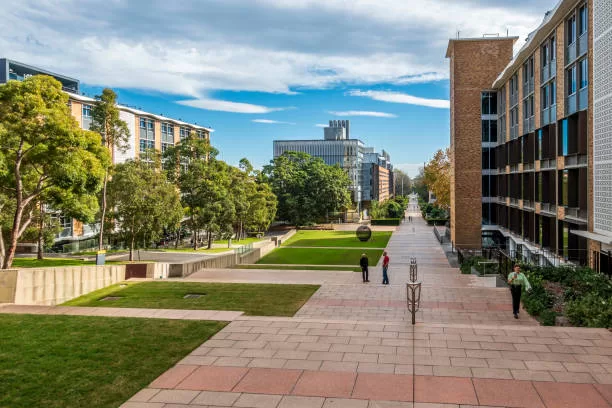Can International Student Buy A House In Canada
Canada has emerged as a popular destination for international students seeking quality education and a multicultural experience. With a stable economy and a vibrant real estate market, many students wonder if it is possible for them to buy a house in Canada during their studies. In this article, we will explore the eligibility criteria, financing options, steps to buying a house, as well as the benefits and challenges that international students may face in the Canadian real estate market.
As an international student in Canada, the idea of owning a house may seem like a distant dream. However, with the right information and guidance, it is indeed possible to make this dream a reality. Understanding the Canadian real estate market and the specific eligibility criteria for international students is crucial to navigate the process successfully.
Understanding the Canadian Real Estate Market
Before delving into the details of buying a house as an international student, it’s important to grasp the dynamics of the Canadian real estate market. Canada’s real estate market has been experiencing steady growth over the years, particularly in major cities like Toronto, Vancouver, and Montreal. The market is influenced by factors such as population growth, employment opportunities, and interest rates.

Eligibility Criteria for International Students
International students in Canada are not restricted from buying property solely based on their citizenship or immigration status. However, certain eligibility criteria must be met to proceed with a house purchase. Typically, international students are required to have a valid study permit, a stable source of income, and a good credit history. Additionally, lenders may have specific requirements regarding the length of study and remaining duration of the program.
Financing Options for International Students
Financing a house purchase can be a significant challenge for international students, as they may have limited credit history and income sources. However, several financing options are available. International students can explore obtaining a mortgage through Canadian financial institutions, provided they meet the lender’s requirements. Another option is to seek financial support from family members or consider co-ownership with trusted individuals.
Renting vs. Buying: Pros and Cons
Renting and buying each have their advantages and disadvantages, and international students must carefully consider their circumstances before making a decision. Renting offers flexibility, lower upfront costs, and reduced responsibility for property maintenance. On the other hand, buying a house provides long-term stability, potential equity growth, and the opportunity to create a home away from home.
Steps to Buying a House in Canada
- Research and Planning: Conduct thorough research on the local real estate market, neighborhoods, and property prices. Set a budget and establish your preferences for location, property type, and amenities.
- Building Your Financial Profile: Start building a strong financial profile by establishing a Canadian bank account, obtaining a Social Insurance Number (SIN), and building a good credit history through responsible financial habits.
- Getting Pre-Approved for a Mortgage: Seek pre-approval from lenders to determine your borrowing capacity and interest rates. This will help you set a realistic budget and streamline the house-hunting process.
- Finding a Real Estate Agent: Engage the services of a reliable real estate agent who specializes in working with international buyers. They can guide you through the local market, negotiate on your behalf, and ensure a smooth transaction.
- House Hunting and Making an Offer: Visit properties that meet your criteria and make informed decisions. Once you find your ideal house, work with your real estate agent to make a competitive offer and negotiate favorable terms.
- The Closing Process: If your offer is accepted, you’ll enter the closing process, which involves inspections, finalizing financing arrangements, and completing legal documentation. This culminates in the transfer of ownership and the exchange of funds.
Do International Students Need To Pay Extra Property Tax For Buying A Home In Vancouver, Canada?
According to the write-up from the official BC government website, non-BC residents/foreign buyers or students must pay a 20% tax on top of the property value in certain regions of Canada.
Let’s take for instance, if an international student is interesting in purchasing a $1,000,000 house in the Vancouver area of Canada, he or she may need an additional $200,000 as the Non-Resident Speculation Tax (NRST).
Here are the areas that include non-resident speculation tax (NRST)
- Capital Regional District (CRD)
- Metro Vancouver Regional District
- City of Abbotsford
- District of Mission
- City of Chilliwack
- City of Kelowna
- City of West Kelowna
- City of Nanaimo
- District of Lantzville
What Are The Benefits And Drawbacks Of Buying A Home As An International Student?
There may be several factors to consider when purchasing a property while studying abroad. The benefits of purchasing a property as an international student include the following.
It can offer students a secure living arrangement, saving them from renting scams or getting taken advantage of by unreliable landlords.
Students may want to consider renting out their apartments as an investment since it gives them a long-term investment potential in addition to a source of additional income.
But there are a few reasons you might want to think twice before making the purchase if you’re an international student in Canada:
It might result in higher expenses for you as a student.
It can result in additional expenses for you to bear as a student, such as insurance and repair charges.
International students may not want to be committed to a mortgage due to the uncertainties surrounding their future intentions.
As the students’ future employment may not be in Canada, they could have to pay additional taxes (such as the empty-homes tax) if they choose to work or return to their home country.
Important Factors to Consider
While buying a house in Canada, international students should keep several factors in mind to make an informed decision:
- Location: Choose a location that suits your lifestyle, proximity to educational institutions, and potential future resale value.
- Budget: Determine a realistic budget that includes not just the purchase price but also additional costs like property taxes, insurance, and maintenance expenses.
- Legal Procedures and Documentation: Familiarize yourself with the legal requirements, including property transfer taxes, land registration fees, and any specific regulations for international buyers.
- Property Taxes and Insurance: Understand the property tax structure and associated costs. Additionally, obtain suitable insurance coverage to protect your investment.
- Future Resale Value: Consider the potential for property appreciation and demand in the area. This can impact your long-term investment strategy.
What Is The Process For International Students To Get A Mortgage In Canada?
Let look at what it takes to get a mortgage in Canada. The process for an international students to get a Mortgage in Canada include:
Step 1 – Deposit
As an international student, you are required to deposit 35% of the sale price of the property.
Step 2 – Identification Verification
After you’re done depositing, you will need a government-issued ID (with your current address) and your SIN number.
Step 3 – Proof of Income
This is a critical stage. Here, you will have to provide lenders (the bank) with your monthly salary and your ability to meet the debt servicing ratios, like an employment letter verifying income either in the Canadian or US dollars. However, students may not have a job, it may not be applied to all students.
Step 4 – Basic Financial Information
As an international student, you will need to provide your credit score, mortgage pre-approval letter, bank statements, and list of your assets (local and foreign).
Step 5 – Down Payment Confirmation
Here, you will need to prove your source of fund. There are lots of methods to prove your source of funds, it can be:
- a statement of savings or investment: This document will prove the funds you use for your down payment are liquid (meaning they can be easily accessed).
- a gift letter (gifting down payment): a written statement confirming that funds given to a borrower for a down payment are a gift rather than a loan that has to be repaid.
Step 6 – Property Details
Your bank would want to see the details of the property you are buying. You may have to provide a final purchase and sale agreement, which is a signed contract between you and the seller.
Benefits of Buying a House in Canada
Purchasing a house as an international student in Canada offers several advantages:
- Building Equity: Buying a house allows you to build equity over time, which can be a valuable asset in the long run.
- Stability and Long-term Investment: Owning a home provides stability and the potential for long-term financial gains, especially in a growing real estate market.
- Potential Rental Income: If your circumstances change in the future, you can rent out the property, generating a passive income stream.
- Pride of Ownership: Buying a house gives you a sense of pride and belonging, allowing you to create a comfortable and personalized living space.
- Possibility of Permanent Residency: In certain cases, homeownership can contribute to an application for permanent residency in Canada.
Challenges and Risks
While there are benefits to buying a house, international students should also be aware of the challenges and risks involved:
- Limited Mortgage Options: International students may have limited access to mortgage options, potentially requiring a larger down payment or higher interest rates.
- Currency Fluctuations: International students must consider currency fluctuations when budgeting for mortgage payments and other expenses.
- Understanding the Local Market: Lack of familiarity with the local market dynamics and trends can pose challenges during the house-hunting process.
- Maintaining the Property: Homeownership comes with responsibilities, such as property maintenance and associated costs.
- Immigration Policies: Changes in immigration policies or the expiration of study permits may affect your ability to continue residing in Canada.
Conclusion
Owning a house in Canada as an international student is not an impossible feat. By understanding the Canadian real estate market, meeting eligibility criteria, exploring financing options, and considering the benefits and challenges, you can navigate the process successfully. Buying a house provides stability, potential financial gains, and a place to call your own while pursuing your education in Canada.
FAQs
1. Can international students buy property in Canada without Canadian citizenship or permanent residency? Yes, international students can buy property in Canada without Canadian citizenship or permanent residency. However, they need to meet certain eligibility criteria and fulfill the requirements set by lenders.
2. Are there any restrictions on the type of property international students can buy in Canada? International students can buy various types of properties, including houses, condominiums, or townhouses, subject to local regulations and zoning restrictions.
3. Can international students get a mortgage in Canada? Yes, international students can secure a mortgage in Canada, provided they meet the lender’s requirements, have a stable source of income, and fulfill other necessary criteria.
4. What are the advantages of renting instead of buying a house as an international student? Renting offers flexibility, lower upfront costs, and reduced responsibility for property maintenance. It allows international students to explore different neighborhoods and move easily if their circumstances change.
5. Can international students benefit from the Canadian real estate market in the long term? Yes, international students can benefit from the Canadian real estate market in the long term. Property values in many Canadian cities have been appreciating steadily, making real estate an attractive investment option. However, market conditions can vary, so careful research and analysis are essential.


